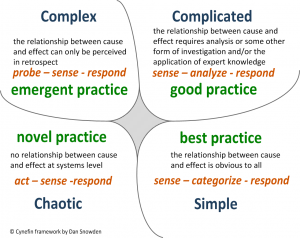by Nikki D’Adamo-Damery and Phil D’Adamo-Damery, Former Deputy Director of the AFP (2011-2016), currently serving as the Community Coordinator for the Maggie Walker Community Land Trust
How do you create a place-based food system that is resilient, accessible, affordable, and healthy for Appalachian communities? That question was at the heart of the Appalachian Foodshed Project’s (AFP) work in West Virginia, southwest Virginia, and western North Carolina. The AFP engaged nutritionists, food distributors, sustainable agriculture experts, NGO’s, funders, government agencies, educators, producers, and community activists to creatively address food security across Central Appalachia using funding from the USDA’s AFRI* program. Over the course of 5 years, we moved beyond the search for silver bullets and easy solutions, and instead focused on how we might create the conditions for long-term, dynamic change.
In order to make this shift, we had to change the way we understood food security. Community food security is not a simple, or even a complicated, problem, even though we often treat it as such. It is complex, involving ever-moving relationships between culture, economics, environment, and policy. In order to address this complexity, we need to find new ways of working together so that we can nimbly respond to changing dynamics.
Through our work with community and university partners, we have identified 9 key propositions for organizing with complexity. You can find a more in-depth overview in our report:
In food security work, complexity is certain.
- Proposition 1. Build a diversity of voices and perspectives
- Proposition 2. Establish Consent instead of Consensus
- Proposition 3. Experiment >> Evaluate >> Re-tool
Food systems change is multi-directional, not linear.
- Proposition 4. Expect Emergence
- Proposition 5. Make Experimental Alliances
- Proposition 6. Expect to Change Others AND Yourself
We create conditions and spaces for emergent transformations.
- Proposition 7. Cultivate a Network Mindset and nurture network processes
- Proposition 8. Utilize Open Systems for Transparent Information-Sharing
- Proposition 9. Adopt a Peer-to-peer ethos
We have learned a lot over 5 years, though this is an ongoing process. The Appalachian Foodshed Project has emerged into the Appalachian Foodshed Partnership, and is experimenting with these propositions to create sustainable, long-term change in central Appalachia and beyond.
*The Appalachian Foodshed Project (AFP) originated in 2011 as a grant funded through the USDA’s Agriculture, Food and Research Initiative (AFRI) grants program (Award Number: 2011-68004-30079). Virginia Tech served as the lead academic institution, partnering with North Carolina State University and West Virginia University for a five-year endeavor to address community food security in western North Carolina, southwest Virginia, and West Virginia.
[i]Snowden, D.J., Boone, M.E. (2007). A leader’s framework for decision making. Harvard Business Review, November, 69-76.

